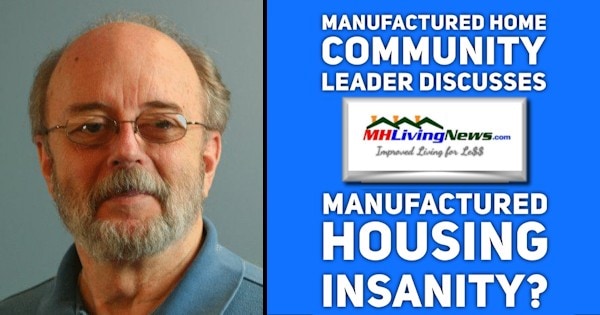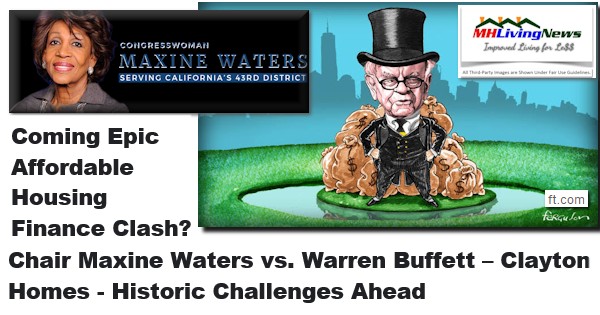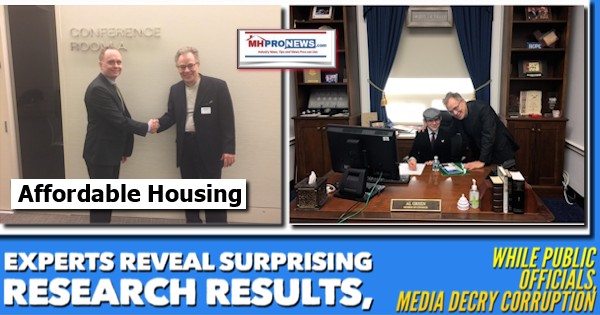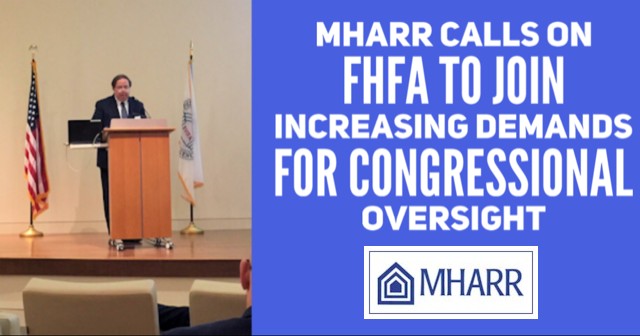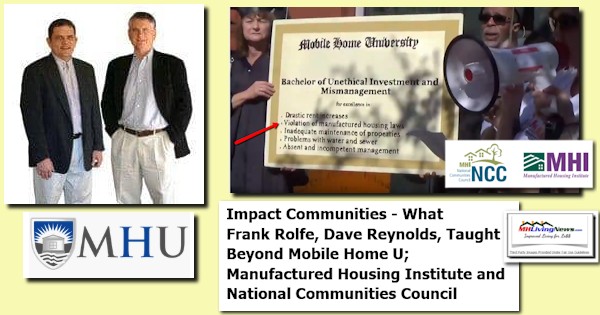
“Our industry is full of people that don’t think very far out.”
“And Legacy’s view is, we have to address all of those concerns [that are limiting manufactured housing] and
more to be effective in the affordable housing market.”
– Curt Hodgson, Legacy Housing (LEGH);
comments made during investor call.
What follows is arguably another indication of a slow-motion, multiple billion-dollar scheme to defraud manufactured housing industry professionals which obliquely harms consumers in the wake of deceptive practices that new documents shed light on.
“The Federal Trade Commission Act is a consumer protection law. It created the FTC.” stated the Winston and Strawn LLP law firm.
A source at the Federal Trade Commission has told MHProNews on background that the agency pursues cases of fraud perpetrated against businesses and other professionals “all the time.”
That FTC source gave examples, but there are several to be found published on the FTC website. So just because the word “consumer” is in the law, that is not meant to exclude professionals, investors or businesspeople that can be victimized by fraud, misrepresentation, false advertising or other forms of deceptive practices.
Addressing the meaning of the federal law regarding a deceptive or unfair practice, “There must be a representation, omission, or practice that misleads or is likely to mislead the consumer. An act or practice may be found to be deceptive if there is a representation, omission, or practice that misleads or is likely to mislead the consumer,” stated the Federal Reserve about Section 5 of the act, which is about unfair or deceptive practices.
MHProNews reached out to Gooch and MHI leadership via email for comments, clarification or reaction. Here was that message, which included several others in the industry as BCCs to document the outreach.
The subject line said:
“About those Lesli Gooch documents, questions, feedback and additional insights”
The body of the message to MHI leaders is dated Monday, January 20, 2020 at 8:46 AM and read as follows.
====


There’s more, but those examples make the point. That would suggest that while Ms. Gooch was ‘on the clock’ so to speak for MHI, she was doing lobbying reporting for others. That leads to even more questions.
An association executive told MHProNews that it might potentially be okay, based upon certain disclosures and given the notion that it wasn’t in itself a conflict of interest. That sentiment was echoed in an email from a longtime MHI member, one who appears to be ‘pro-Gooch.’ That message, including typos in the original, are found below.
“My gut reaction is that there was and has been full disclosure by Leslie to the key MHI senior staff member who she reported directly to and the Executive Committee if that senior staff member followed either the MHI By-Laws or proper protocol. All of this had to have been disclosed when Lesli was originally interviewed and subsequently hired. Especially, since these relationships predated her employment with MHI. Furthermore, just as you have done, these are all public records which would have been disclosed in a thorough personal investigation which should be standard in an employment situation of this nature.
If that is not the case then, in my opinion, the individual or group who hired Lesli have some major explaining ro provide.
In my opinion, someone is definitely looking to create an issue regarding Leslie and her employment with MHI.”
Those points noted – namely that there might be a different way to view this, were noted in our original report, although it did so using different verbiage.
This point about the time/date stamps begs several questions. Was Ms. Gooch not only doing reports for others during ‘MHI time,’ but was she also lobbying at times during MHI time?
As the original report notes, an insider thought this was an ‘unusual’ arrangement. “Was not aware if MHI’s BOD [executive committee] knew about it.” But either way, if the BOD knew or not, it doesn’t look good does it?
And if Rick Robinson, who an insider said was also seemingly doing work for others besides MHI during his tenure there, then how much of this type of behavior was going on? Why would MHI’s BOD sanction it at all? What wonderful outcome has flowed from Gooch’s or Robinson’s moonlighting that MHI could point to as some accomplishment for the industry?
One must keep in mind that the whistleblower who provided those initial documents as a tip clearly must have thought that they were sending something relevant and problematic. Recall that there was no cover or other notes with the whistleblower’s tipped documents. That source surely must have thought that the documents would speak for themselves.
Several contacts with MHI members resulted in ZERO that said they were aware of Gooch’s outside activities. But in fairness, some were asked that declined to respond.
In our view, much of this arguably underscores the hypothesis that MHI exists in recent years as a tool for consolidation being used by what Marty Lavin called ‘the big boys’ and not as a genuine body for advocacy on behalf of all of the industry. That opens up several ethical and legal issues. As a non-attorney, among them could be deceptive trade practices, fraud, RICO and COI – as was reflected in the original report.
We welcome follow up comments. If MHI’s BOD, Ms. Gooch or others have a reasonable explanation for this, we await such a written explanation. So far, those sources have remained silent.
Needless to say, the article is getting good readership. More on that another time.
Thank you in advance for your emailed comments and insights. If it [is] on or off the record, please so state in your message.

Thanks,
Tony
== ## ==
According to a published study by the FTC in 2017, mass market consumer fraud accounted for a large share of the 15.9 percent of the population that were harmed by various illicit schemes. That amounts to some 40 million U.S. adults.
“Internet transactions, which continue to grow, accounted for a substantial share of fraudulent incidents. According to the survey, 54 percent of all incidents of fraud involved Internet promotion of products and services, up from 33 percent in the 2011 survey,” per that FTC research.
That FTC source on background told MHProNews that the agency routinely collects “millions of dollars” in individual cases involving schemes that defraud businesses.
When asked about a trade association involved in deceptive practices, that becomes more nuanced, said that FTC source. There are variables that may make the matter a federal case, but others could make it a state case. The facts and the law would dictate.
The FTC research in 2017 also said:
“The survey results indicate that consumers aged 35 to 54 were more likely to be victims of fraud compared to consumers in other age categories. According to the survey, 22 percent of respondents between 35 and 44, and 20 percent of respondents between 45 and 54, were victims of fraud. The survey also found that women were more likely to be fraud victims than men, with 19 percent of women reporting that they were victims of fraud, compared to 13 percent for men.
The survey results indicate that people who were more willing to take risks, and those who had recently experienced a negative life event (such as a severe illness or the death of a loved one), were more likely to have been fraud victims. Those experiencing high levels of debt and those who predicted that their incomes would rise substantially in the next few years were also more likely to have been fraud victims.”
MHProNews Analysis and Commentary
- There are only 2 reasonable possibilities. Either the MHI Executive Committee (MHI board of directors or MHI BOD) knew about Gooch’s – and possibly Rick Robinson and others – outside activities and purported conflicts of interest, or they did not.
- Given that a source within MHI has told MHProNews their awareness of this apparent conflict of interest (COI), it is reasonable to think that the MHI BOD knew too.
- But even if the MHI BOD didn’t about Gooch’s purported COI, that also speaks volumes. Why would staff tell MHProNews something and not tell or ask their own board?
- Furthermore, why hasn’t MHI’s BOD – now that they most certainly know from our reporting – taken steps to publicly and swiftly address this concern?
- In short, there is silence from MHI’s elected leadership. There is silence from Gooch. And there is public silence from MHI President Mark Bowersox. If they had a good explanation, why haven’t they already provided it?
The deductive logic of the above arguably leads to only problematic conclusions.
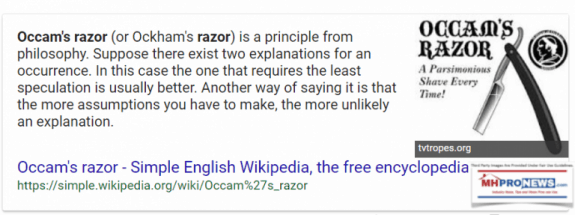
As a relevant flashback, consider the following.
In an article that was updated on July 20, 2016, MHProNews publisher, who served as an MHI Suppliers Division board member and was still an MHI member – L. A. ‘Tony’ Kovach made the case “Why Richard “Dick” Jennison and Lesli Gooch at MHI Should Resign or Go.” That link is to the page on this new website, which reflects that the original report was updated on our previous website on 7.20.2016.
That incident outlined in that report from approaching 4 years ago flowed from a tip from a regular attendee at MHI meetings. That tipster’s firm has been an MHI member for some time. Rephrased, for over 4 years, several issues of concern involving the Arlington, VA based MHI have flowed from MHI members and insiders that are troubled by evidence of apparently deceptive practices.
Those alleged deceptions involve the use of ‘the wires’ could trigger several possible agencies involvement. If one presumes that the goal is to defraud, while that may involve the FTC and/or state agencies, it could also involve others. Antitrust, SEC, RICO, IRS, FHFA and HUD are just some of the federal agencies/legalities that could be involved.
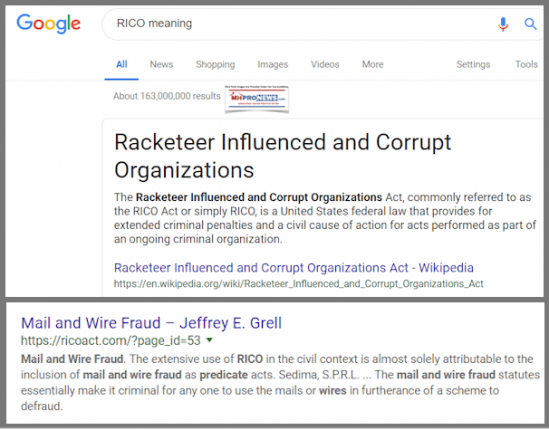
It is difficult to forge an argument in defense of the Arlington, VA based trade group that could reasonably explain how MHI could be so bad at doing the advocacy that they claim to do on behalf of all segments of manufactured housing in their federal filings.
At the time of that 7.20.2016 updated report, there was concerns raised about Gooch and Jennison in terms of their honesty to the industry. That was brought to attention of the chairman of the MHI board of directors at that time, Tim Williams. Williams is also the president and CEO of Berkshire Hathaway owned 21st Mortgage Corporation. The MHI board of directors or “executive committee” was given the benefit of the doubt for some time. What did Williams do? Williams staged a vote at a subsequent MHI meeting in support of Jennison. That public vote organized by Williams makes it difficult to claim plausible deniability now.
Since that time, as noted and as longer-time MHProNews readers know, there have been other documents periodically provided as news tips. Among those were those signed by Tim Williams. See the report below, because that report makes the case that the math points to a multiple-billion-dollar scheme.
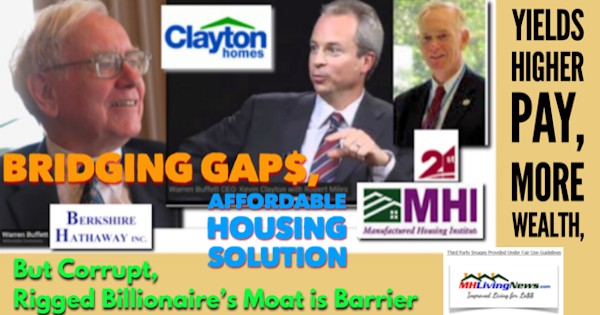
Copies of the documents from the same whistleblower’s recent tip are found in the systematic report linked below.
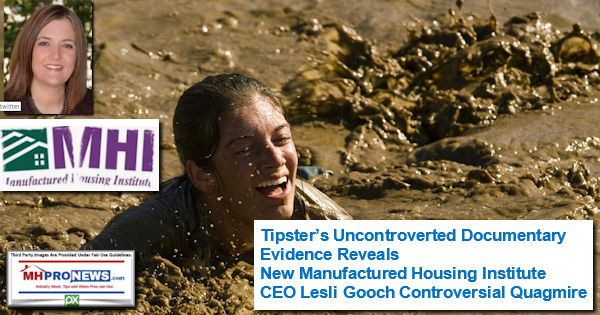
Those documents came in the wake of the prior report found at the linked text-image box below. That focused on purported prima facie evidence of perjury and other legal offenses.
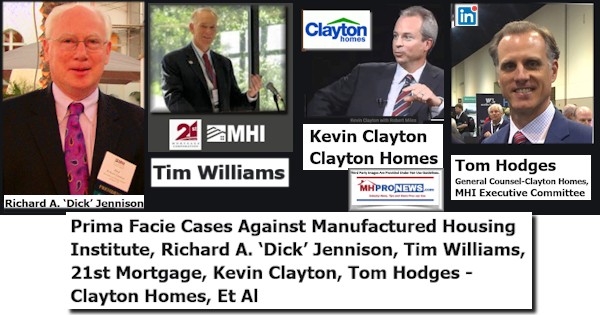
MHI has purportedly struck deals with MHVillage which published MHInsider. Per MHVillage they are “endorsed” by and ‘partner’ with MHI. While the free press has rights that absolutely must be respected, it is a reasonable question if what MHInsider, George Allen, MHI or others produce is in fact propaganda that is compensated and intended to deceive.
- The manufactured housing industry is dramatically underperforming.
- MHI is the industry’s self-proclaimed umbrella association which includes post-production issues.
- MHI claims in their IRS Form 990 specific efforts to grow and improve the industry’s operating environment. Those claims are made under penalties of perjury. Their own 990 filing makes it clear that the executive committee or MHI BOD reviews the final version of that IRS statement.
- There are prima facie examples of false and misleading claims made by MHI that use the U.S. Mails, the internet or ‘the wires.’
- These raise issues that could be violations of state and/or federal laws.
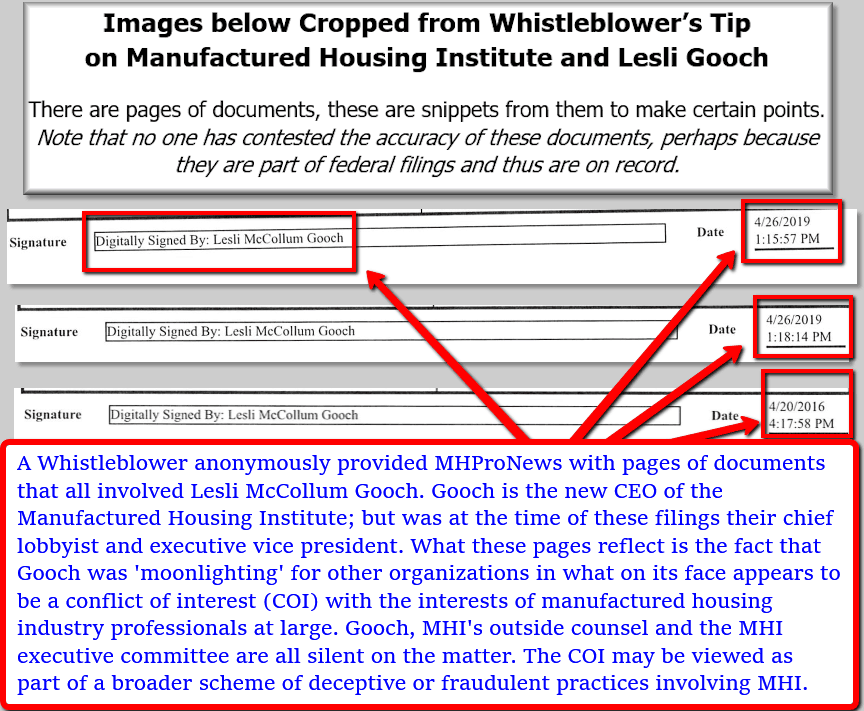

Nonprofit Quarterly On Fraud Hiding in Plain Sight
There are examples of various forms of illegal activities that have occurred with respect to nonprofits in the United States.
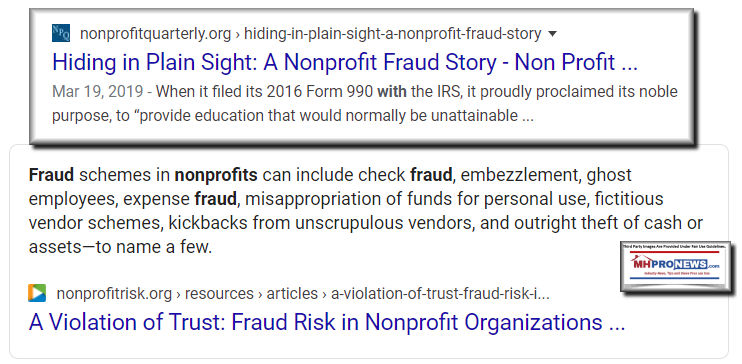
If MHI staff or board members of guilty of fraud, deception or other problematic practices, it won’t be first in the nonprofit world.
The response, such as it is, by MHI is to have surrogates attempt to purportedly threaten or undermine this trade media, rather than dealing with the allegations. The razzle dazzle, photo and video opportunities, or similar head-fakes are more in keeping with a con. If the MHI BOD were not aware of these problems – and they learned about it from MHProNews – then if they were ethically minded, they would arguably remove the offending MHI senior staff.
But the opposite seems to have taken place. MHI’s senior staff have been given bonuses, per their 990 filings, instead of accountability.
It is outrageous on its face that during an affordable housing crisis that MHI has done such a terrible job, based upon the actual data. Other forms of housing, as well as other big ticket sales products, are doing much better. See the step-by-step facts and the logic of that claim linked below.
How can MHI claim momentum in that video on their home page with a straight face?
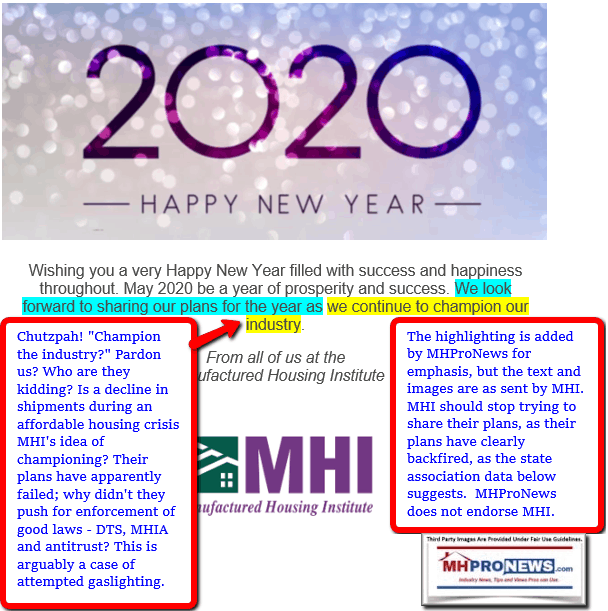
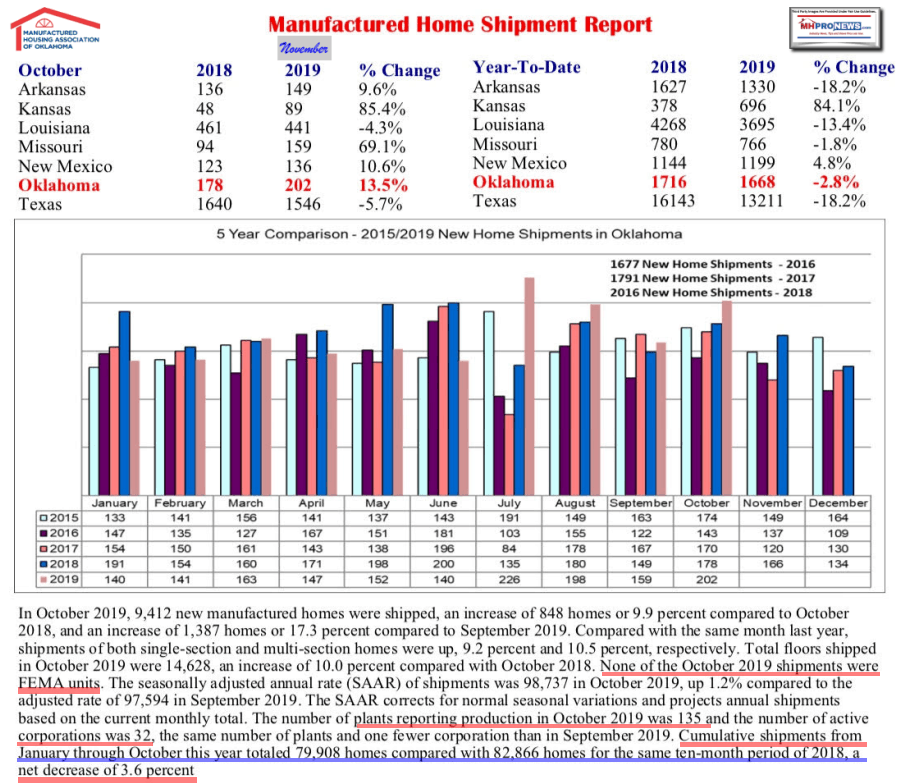
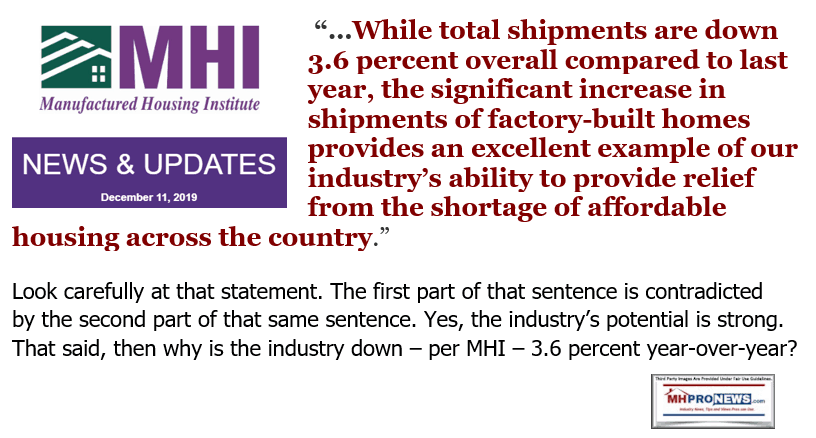
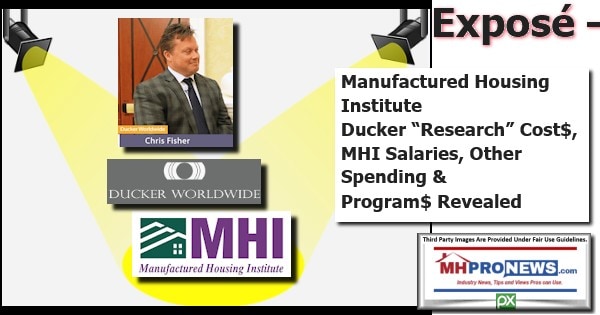



MHI fails to properly push the good laws that are on the books. The evidence for that is once more found in the actual results.
Instead of pushing for the enforcement of existing good laws, they are instead pushing for a new law that as currently phrased could undermine enhanced preemption.
Federal Bill that MHI, Prosperity Now, NAMHCO Tout – MHARR Opposes, Why?
This analysis isn’t suggesting that MHI has always been a scheme to defraud. But there is evidence that over the course of time since Clayton Homes was acquired by Berkshire Hathaway, that the industry’s largest trade organization has routinely failed in the ways that matter.
Even their former Chairman Nathan Smith said that the industry had to be honest with itself and admit that it had failed to be pro-active. He pledged that the problematic pattern would change. Has it?
Note that the video from Smith – produced prior to the time that problematic news about his firm SSK Communities became widely known – laughs as he explains that he wants all of the communities for himself, and doesn’t want outsiders coming in. That sounded like a joke at the time. But was it revealing with respect to how MHI is being used for consolidation?
Frank Rolfe, whom several believe has been bad for the industry’s image, ripped Nathan Smith later.
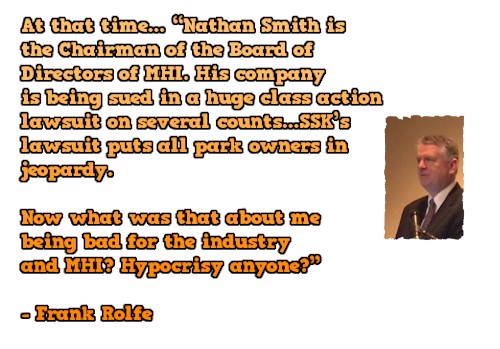
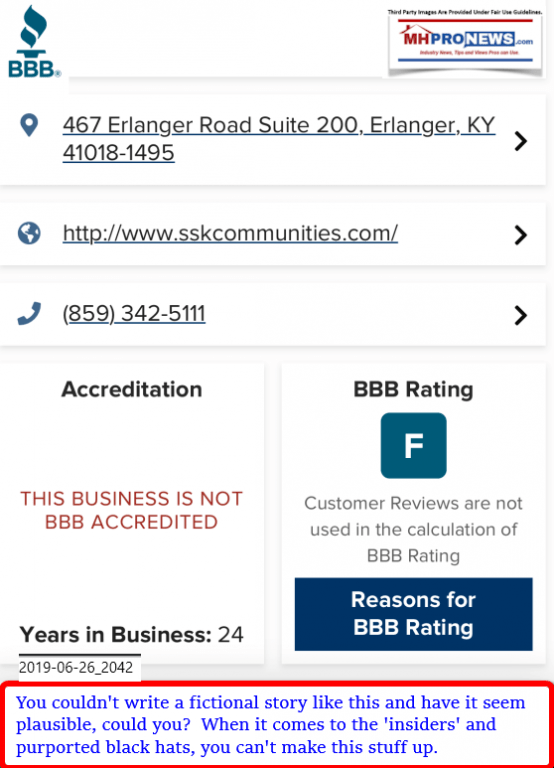
Rolfe – a partner Mobile Home U and in what was then called RV Horizons, but has since been rebranded Impact Communities – also ripped MHI for failing to defend the industry when bad news occurred, or to promote the industry when good news took place. That noted, using the principle of separating the wheat from the chaff, ponder this statement by Rolfe.

As if to confirm such concerns that MHI is being used to thwart growth rather than promote it, Jennison in 2014 urged on camera slow growth.
Note that Jennison and others connected to MHI, perhaps due to their years of public praise for MHProNews, has had a hard time refuting the mounting evidence.
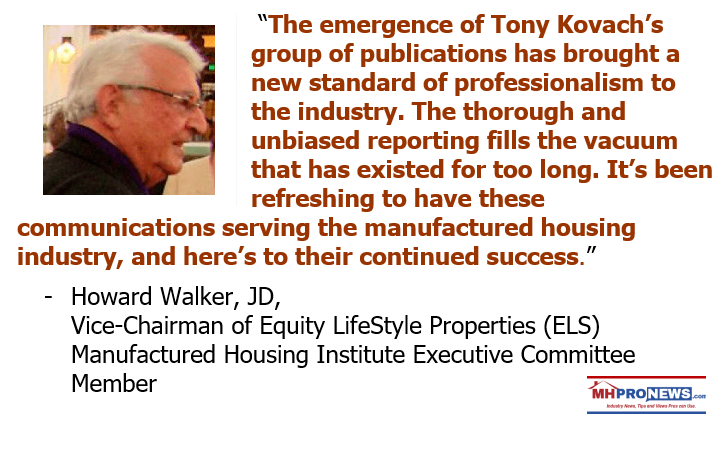
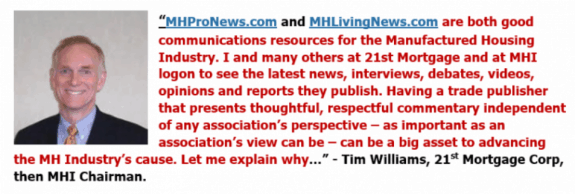
This problematic pattern of behavior – viewed in hindsight and compared to the actual outcomes – makes a compelling case of deliberate underperformance. The purpose? To create conditions that would slowly consolidate the industry at discounted valuations.
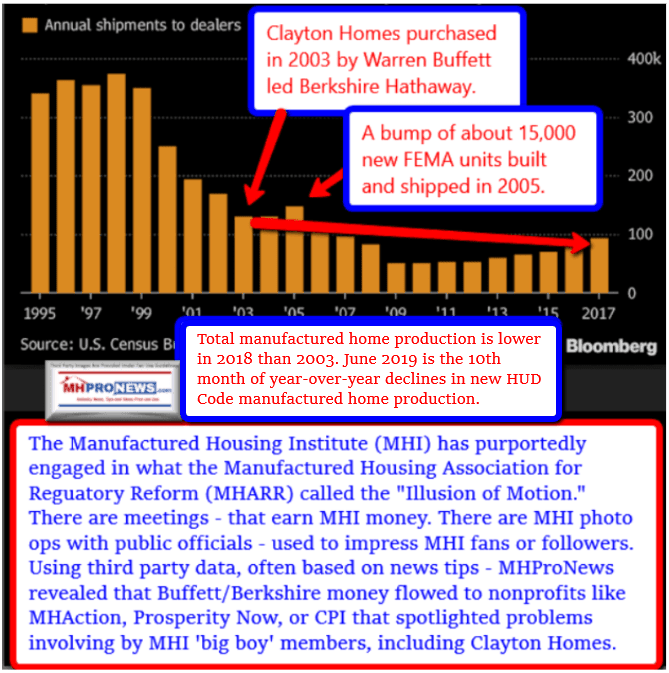
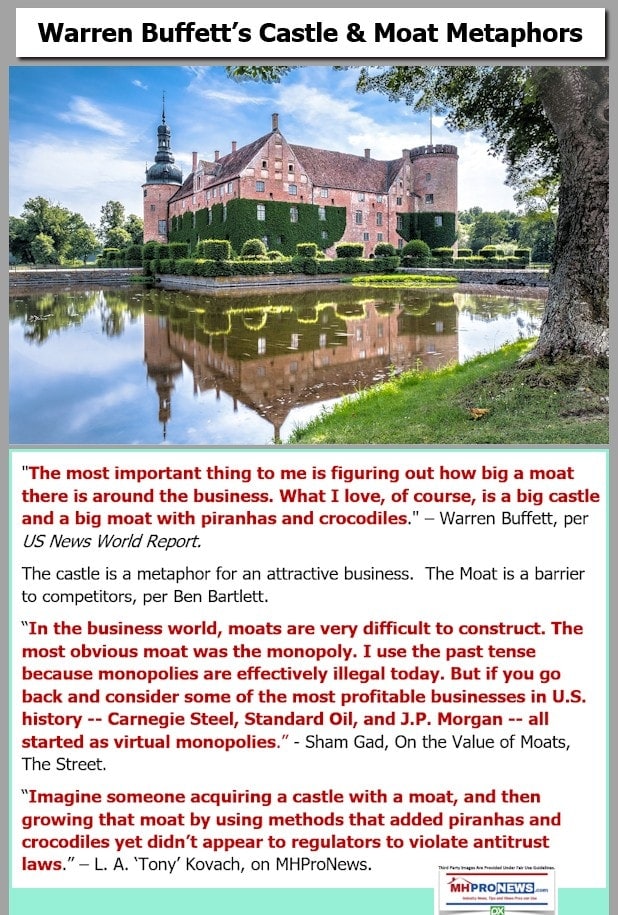
When asked about such matters, there have been several ‘over the target’ reactions. But no known defense of MHI has been published that debunk or successfully explain away this multi-year pattern of underperformance.
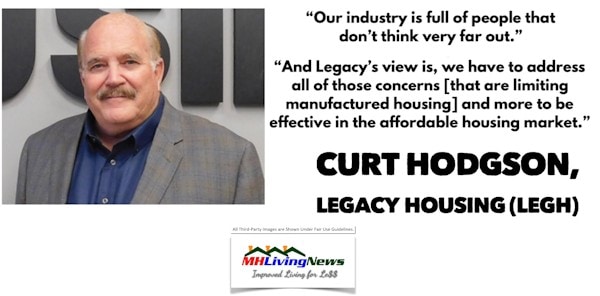
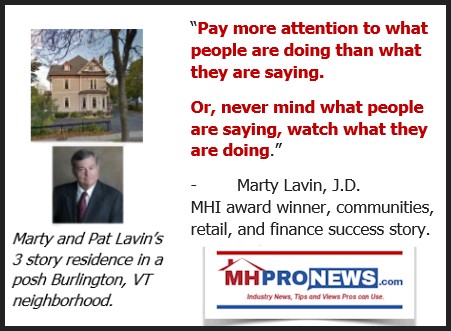
The elected and staff leaders at MHI are educated and intelligent individuals. To believe that they routinely fumble – or fail to be pro-active, as Nathan Smith said – is a logical stretch. Isn’t the more logical thing to believe that they are a corrupted nonprofit that is hiding in plain sight?
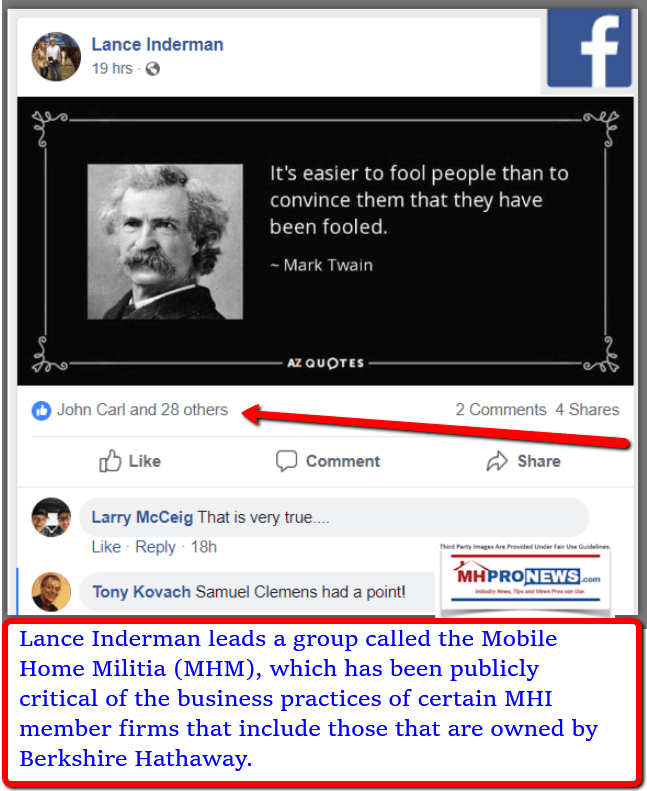
The Manufactured Housing Association for Regulatory Reform (MHARR) has for years urged the industry to form a new post-production trade body that is effective. Mark Weiss a year ago called MHI’s activities “The Illusion of Motion.” Isn’t that akin to a polite way of saying they are attempting to fool people?
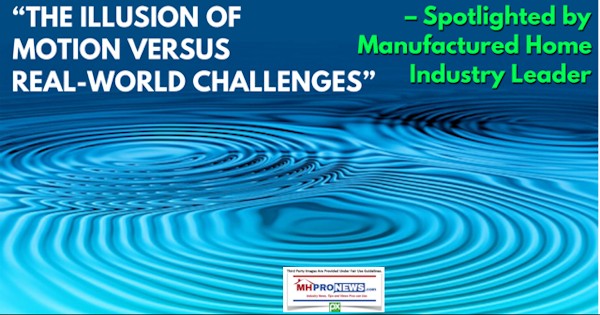
While their decisions since creating the National Association of Manufactured Housing Community Owners (NAMHCO) could certainly be questioned, nevertheless there is wheat to be sifted from Neal Haney’s comment below.
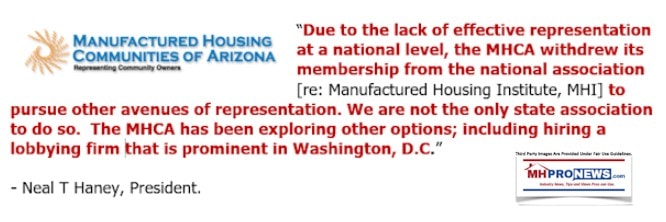
Then president of historic Dick Moore Housing, Bob Crawford, said on stage and on camera the following.
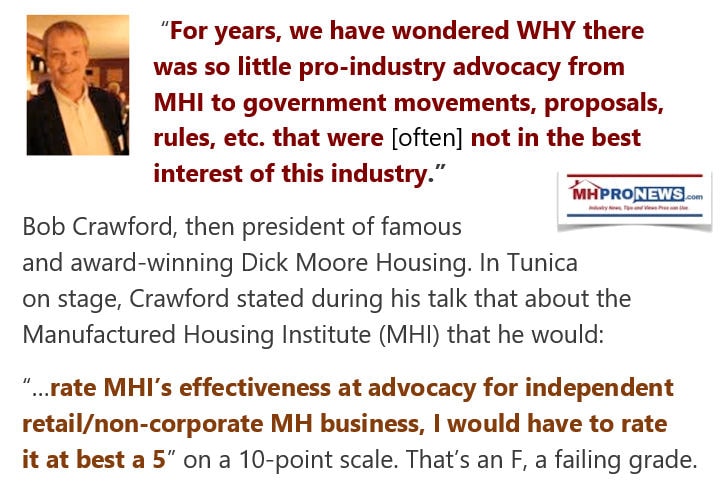
At the time, our publisher was frankly still not convinced that MHI was a scam. But as the evidence mounted, what other conclusion could an intelligent person come to regarding MHI?
But the purportedly pernicious ways that other nonprofits have been weaponized and aligned to aid MHI that bears scrutiny too. People like George Allen and Spencer Roane ‘teach’ practices that have been called illegal by an industry attorney. They are RV MH Hall of Fame inductees? Isn’t that an insult to those who have done white hat business, often for decades, who have been similarly inducted?
How good is an award from MHI? When one looks at the legal and regulatory cloud that has hung over many of their executive committee members, isn’t it increasingly self-evident that this is a corrupt scheme that includes a corrupted nonprofit?

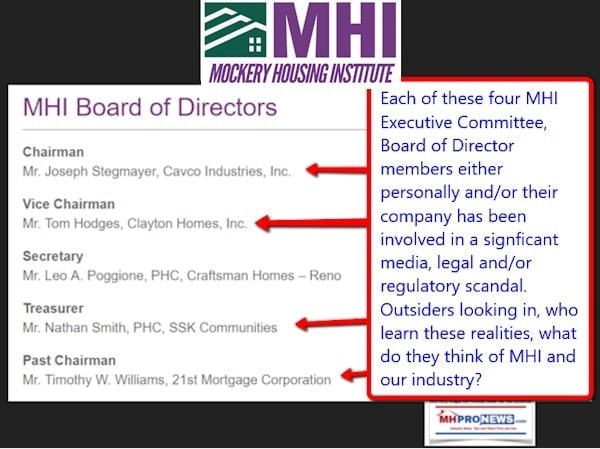
This report scratches the surface on years of research. There are ripples of implications for investors, professionals, public officials, affordable housing advocates and others.
“This industry for decades was made up of ‘mom and pop’ operations that routinely took good care of their customers. They are among the ‘white hats’ of manufactured housing. By the early 2000s, there has been evidence of a trend to consolidate smaller firms, sometimes by arguably derailing or sabotaging them. Those that use unethical or arguably illegal tactics are the black hats. When one looks at the history of MHI over the last decade, it is important to ponder the exiting comment of a prior president and CEO, Chris Stinebert. Knowing that MHI reportedly requires non-disclosure agreements (NDAs) from their staff, Stinebert’s exit message to the industry was arguably a polite slap in the face at the leadership of the Arlington based trade group,” said L. A. ‘Tony’ Kovach, former MHI board member. “The pattern of behavior and their lack of performance is so problematic that it is hard to defend them as an authentic trade group. Indeed, a MHEC member said they are guilty of “association malpractice” in their handling of issues.”
But if you read the emails and message of MHI and their toadies, you’d think the industry is soaring instead of snoring. That disconnect that has been ongoing for years bears regulatory and investigatory scrutiny. If MHI were serious about their reputation, wouldn’t they suspend and ask for a third-party to investigate Gooch? Or are they unable to do so without the paper trail leading back to their corporate leadership?
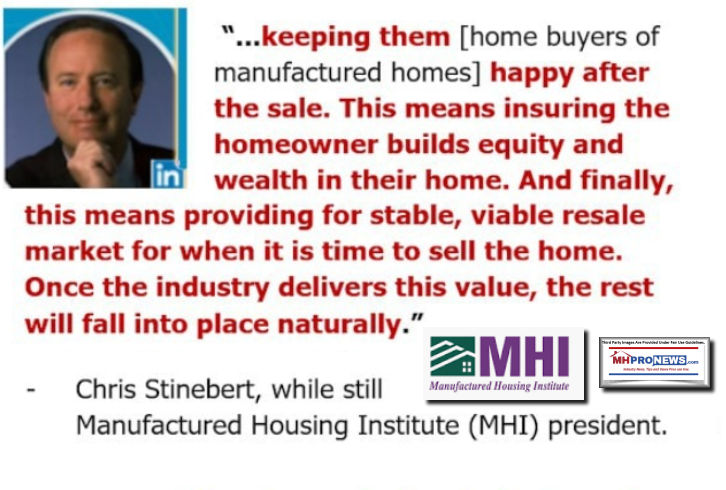
There’s more ahead, but that’s a wrap on this installment of “Industry News, Tips and Views Pros Can Use“ © – MHVille’s runaway #1 news source, where “We Provide, You Decide.” © (News, fact-checks, analysis, and commentary.) Notice: all third party images or content are provided under fair use guidelines for media. 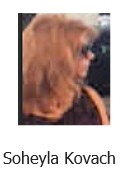
Submitted by Soheyla Kovach for MHProNews.com.Soheyla is a co-founder and managing member of LifeStyle Factory Homes, LLC, the parent company to MHProNews, and MHLivingNews.com. Connect with us on LinkedIn here and here.
